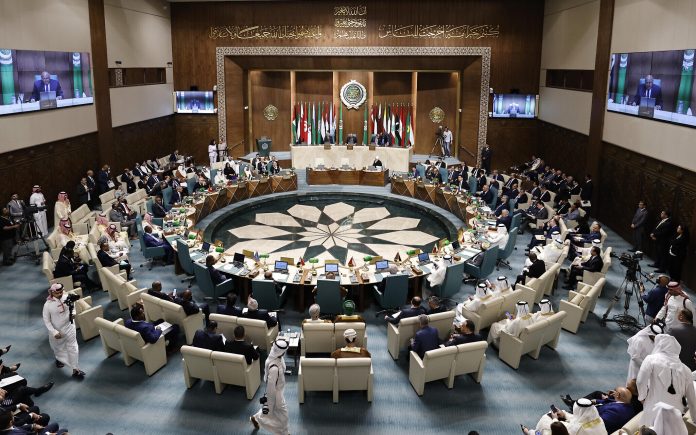
Various institutions and countries of the Arab world reacted to the Arab League’s decision to return Syria to this institution.
In March of this year, with the visit of Faisal Moqdad, the Foreign Minister of Syria to Saudi Arabia and immediately the visit of Faisal Bin Farhan, the Minister of Foreign Affairs of Saudi Arabia to Syria and his meeting with Bashar Assad, the President of this country, the normalization process of the Arab countries with Syria after 12 years. The darkening of relations accelerated.
It was said that the purpose of Saudi Arabia’s foreign minister’s trip to Damascus is to invite Syrian President Bashar al-Assad to attend the Arab League summit, which is scheduled to be held in Riyadh. The foreign ministers of Saudi Arabia, Jordan, Egypt, Iraq, and Syria had gathered in Amman, the capital of Jordan, to review the roadmap for Syria’s return to the Arab world.
At the end of its meeting, the Council of Foreign Ministers of the Arab Union announced by issuing a statement: The Foreign Ministers officially agreed to resume the participation of Syrian government delegations in the meetings of the Union from today, May 7th, by adopting decision No. 8914.
Based on this report, the foreign ministers of the Arab League also emphasized their commitment to maintaining the sovereignty, territorial integrity, and stability of Syria based on the Arab League Charter and its principles.
The participants in this meeting also emphasized the importance of the continuation and intensification of Arab efforts to help Syria in order to get out of the crisis and reduce the suffering of the people of this country. In the continuation of this statement, Ahmed Abul Ghait, the Secretary General of the Arab League, was requested to follow the implementation of the provisions of Decision No. 8914 and to inform the Council of Foreign Ministers of the Arab League about its developments.
“Ahmed Abolghait”, the Secretary General of the Arab League, emphasized that Syria’s return to the League is the beginning, not the end. Abul Ghait also said in a press conference held after the meeting of Arab foreign ministers about Syria-Sudan: “Reviving diplomatic relations with Syria also depends on the decision of each of the countries.”
But Anwar Gargash, adviser to the UAE president, emphasized that Syria’s return to the Arab League is a positive step.
Gargash added: The challenges facing the region require strengthening communication and joint action, in a way that guarantees the interests of Arab countries and their people.
He tweeted: Syria’s return to the Arab League is a positive step that reactivates the role of the Arabs in this vital case.
He added that the United Arab Emirates believes in the necessity of building bridges and maximizing commonalities to ensure regional prosperity and stability.
Lebanon welcomed Syria’s accession to the Arab League
Nabih Berri, Speaker of the Lebanese Parliament, announced in a statement: “The return of Syria to the lap of Arab countries and the return of Arabs to Syria promises a resurrection of joint Arab cooperation; although this decision took many years, but It is a step in the right direction towards a return to Arabic rationality, which can only be improved by unity.”
Egypt’s Reaction to Syria’s Return to the Arab League
“Abd al-Fattah al-Sisi”, the president of Egypt, stated at the opening meeting of the Arab League meeting in Jeddah, Saudi Arabia: The region is going through difficult situations, the solution of which requires the cooperation of Arab countries.
The President of the Republic of Egypt said: It is very necessary to rely on the abilities of Arab countries to solve important issues.
He added: Syria’s return to the Arab League is a step towards restoring the role of this league.
Al-Sisi said: The continuation of military conflicts between the Palestinians and Israel will lead to the explosion of the situation, but Egypt continues its efforts to maintain peace in Gaza.
He stated: If the Sudan crisis is not resolved, it will have a negative impact on the entire region, and if the Arab countries do not end this crisis, it will be prolonged.












